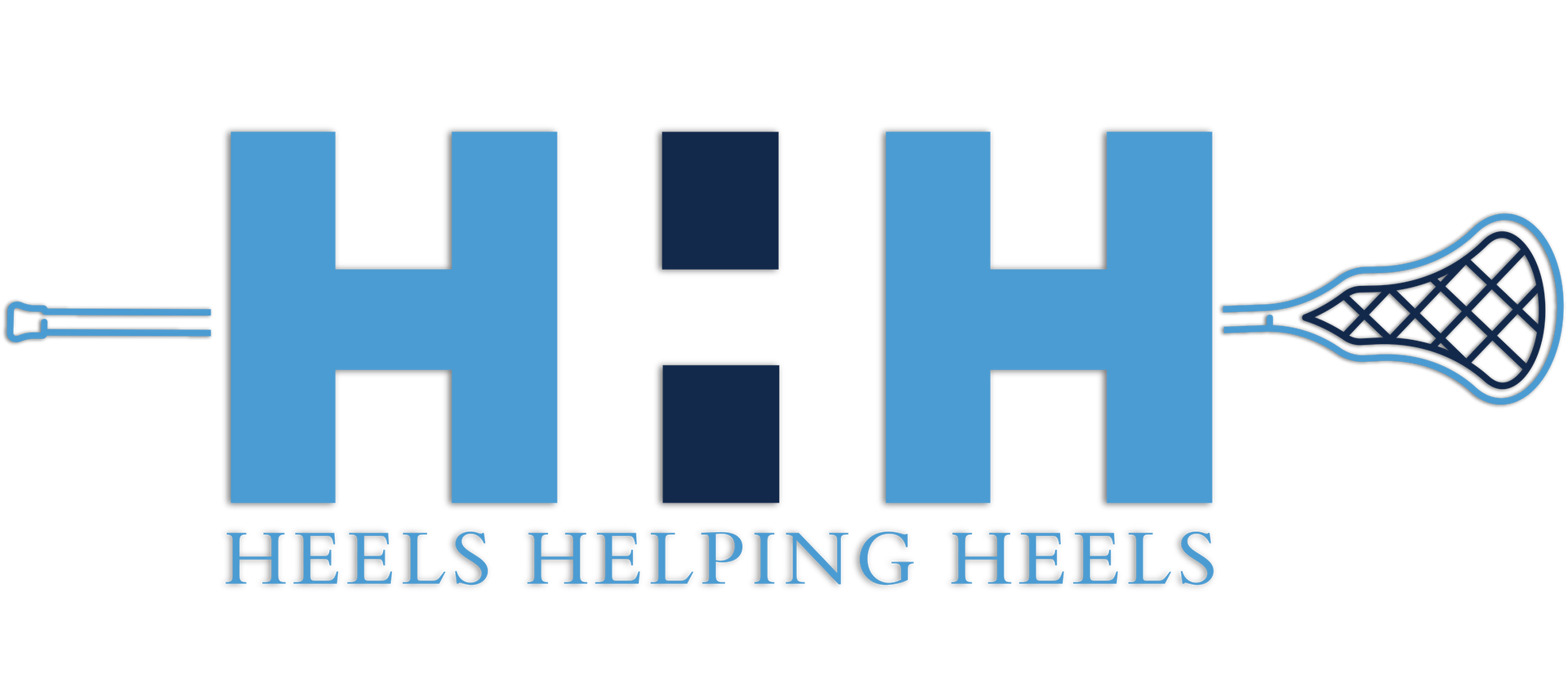BLOG

By Forbes
•
March 15, 2023
People were skeptical when LinkedIn added the #OpenToWork feature a few years ago. Many job hunters worried that this tag surrounding their profile gave off an “I’m desperate” vibe. At that time, recruiters said it had no effect on them and that they ignored it. Fast forward to now. Things have changed a great deal because of the labor shortage. As we start seeing more layoffs and many people quietly job hunting, more people have been using this tag. But is there a better way to get recruiters' attention without telling the universe you are job hunting? Theresa Chow, Senior Recruiting Manager for Clark Nuber , shared her insight. “The #OpenToWork tag on a candidate’s photo doesn’t impact me. However, candidates seem unaware they can use that tag so only recruiters see it. Marking their profile as ‘Open to Work for recruiters’ makes it a searchable item for recruiters. I consider those candidates first as they are looking to leave versus those that are passive candidates. Usually, I start my search with the skillset and get hundreds of names. I can sort those so I see #OpenToWork candidates and contact them first. Only once I get through those individuals do I look at the passive candidates,” she says. Another Senior HR recruiter said, “I like the tag because there is a higher chance that an individual might actually write us back! In today’s marketplace, we get ignored—a lot.” Matthew Warzel, president of MJW Careers , noted that whether or not to use this feature is a personal decision involving your comfort level with publicly declaring that you are looking for a new job. Some job seekers may prefer to keep their job search private. I also recommended you use the #OpenToWork tag but designate it so only recruiters can see it. Keep in mind this is only one passive way to job hunt. It’s not a one-and-done approach. LinkedIn has reported that members who have added the "open to work" tag to their profiles are likelier to receive relevant job recommendations and more messages from recruiters. However, there is no guarantee that using this feature will lead to more interest. Numerous other search techniques, such as networking, should always be a part of any candidate’s strategy. Here’s how to set up #opentowork tag, so only recruiters see it. In the LinkedIn Recruiter help section they explain precisely how to use this feature to share with Recruiter privately they are job hunting. Only recruiters who aren't affiliated with your current or related companies can view this tag. To activate this feature, follow these steps on your Profile page. Below your picture and headline, you’ll see the blue button “Open to.” Click on it and select “Finding a new job.” Complete all the information requested. Note titles, locations, type of work—remote, in-person, hybrid. Select Onsite location —identify where you live (select the city name if you are in a suburb). In the Remote section , you can pick five locations to appear in searches. This makes locations a searchable item for recruiters so everyone should use it. Select Immediately for the start date. Select the Type of Work you desire—full-time, contract, etc. On the bottom tab is a drop-down menu. Check the Recruiters only tab and they will be the only people who see the tag. (If you wish to make your search public, so anyone on LinkedIn can see this tag with its green label around your profile picture, click that option.) Hit save .

By UMASS LOWELL
•
March 15, 2023
Many graduating seniors have been thinking about their first job out of college for some time — taking advantage of Career Services resources, completing co-ops and internships and networking with prospective employers. But as the countdown to Commencement begins to register in weeks instead of semesters, the once-distant notion of starting a career is coming into sharper focus for UML’s Class of 2023. Fortunately, this spring’s graduates are entering a robust job market. The U.S. unemployment rate hit a 54-year low of 3.4% in January, and according to the National Association of Colleges and Employers’ Job Outlook 2023 report, employers plan to hire 14.7% more new college graduates from the Class of 2023 than they did from the Class of 2022. With nearly 200 employers descending on the Tsongas Center for the Spring Career Fair on March 23, Career Advisor (and Double River Hawk) Carla Merkosky ’19, ’21 offered a few tips to help students make the most of their job search. Target your top companies Some students arrive at UMass Lowell knowing exactly what they want to do for their careers. Others discover it along the way. But now that you’ve figured out the industry you want to pursue, Merkosky says you can research which companies and organizations are the best fit for you. Do you want to stay local or are you willing to relocate? Do you want to be at a big company or a startup? Do you prefer remote work or do you want to be in the office? “Make a list of maybe your top five companies and see how you can engage with them,” Merkosky says. “Do you know anyone working there — maybe UML alumni? LinkedIn is a good place to look for those connections. If they’re going to be at the Career Fair or a networking event on campus, start targeting who you want to talk to.” Even if your target company doesn’t have a job posted, Merkosky says it doesn’t hurt to send an inquiry email or letter to the hiring manager, with your résumé attached. “Tell them you’re really interested in their company and highlight how your skills and interests relate to the work they’re doing. Tell them you’d love the opportunity for an informational interview or to shadow someone for a day,” she says. “It’s OK to do more than research online — it’s OK to reach out and ask questions.” Know the difference between job boards and job aggregators — and how to use them The good news? There’s no shortage of job search websites. The bad news? There’s no shortage of job search websites. “Searching online can be overwhelming,” says Merkosky, who notes that the first step is understanding the difference between a job board (like Handshake or LinkedIn, where employers post jobs) and a job aggregator (like Indeed or SimplyHired, which are search engines that compile job posts from across the web). Handshake is the most valuable site for college students and recent graduates, Merkosky says, because “it’s geared toward this stage of your life; they’re not looking for 10-plus years of experience.” Be sure to use filter tabs and save searches to streamline the process, she says, and try not to use more than three or four of these sites “because it starts getting confusing when you receive 10 different emails every week.” While it’s a good idea to post your résumé to a job board, Merkosky cautions against doing so on a job aggregator, as it can lead to unwanted solicitations from recruiters. “They’re so broad, and students complain that they get random phone calls about jobs that they’re not interested in,” she says, adding that it’s OK to post your résumé when applying for a job you find on an aggregator. There are also countless specialty job boards where you can find opportunities posted by specific industries and professional associations. While some companies advertise job openings on social media, Merkosky says apps like TikTok and Instagram are more typically used for marketing. “Social media is definitely a good place for students to figure out what a company’s culture is like, what its priorities and values are and what it’s like to work there,” she says. Network, and then network some more It’s estimated that 70% of jobs are not publicly posted on job search sites. How is that possible? “This number includes people promoted into a position from within an organization or recruited in,” says Merkosky, who notes that the statistic underscores the importance of networking. “As a young professional, you don’t have the network of someone who has been in a field for a while, but networking is as simple as connecting with people to get information,” she says. Open a note on your phone and brainstorm all the people you know: professors, advisors, fellow club members, people you met on co-op or internship, recent alumni. Connect with them online and in person and tell them what you’re interested in doing, Merkosky says. And if you’re back home and a family member is quizzing you about your job search, Merkosky suggests leveraging the conversation to your advantage. “Instead of saying, ‘I’m still figuring it out,’ say, ‘Here’s my next step. Do you know anyone I could talk to about this?’ It’s a way of helping yourself find opportunities,” she says. A good place for students to network with alumni is on UML Connect , which launched just before the pandemic. “It’s like the UML version of LinkedIn,” Merkosky says. “It’s a small community, which is nice, and it’s growing. If an alum is on there, they are really willing to connect with students.” Consider volunteering or contract work Maybe you haven’t found the right full-time position yet, or you have a few free months before starting graduate school. Volunteering with an organization can fill the void. “It’s low stakes, you’re doing something good, and you’re gaining some experience and valuable workforce skills like communication, organization and time management,” says Merkosky, who adds that you should include the volunteer work on your résumé if it’s related to what you want to do. Volunteering is also a good way for Gen Z college grads to network with millennials, Gen Xers and baby boomers. “Working with a retiree from an industry that interests you could lead to a helpful connection down the road,” Merkosky says. Taking a contract or temp position at a company, typically found through an employment agency, is another good short-term option, she adds. As seniors juggle their final few weeks of classes with the excitement of Commencement and the responsibility of applying and interviewing for jobs, Merkosky says they shouldn’t hesitate to reach out to Career Services for support and guidance. “It can be overwhelming, but make sure you’re still creating the space and time to utilize all the different resources when searching for a job,” she says.

By Yahoo!News
•
March 15, 2023
Mar. 13—EAU CLAIRE — Of the 2,230 students who received their UW-Eau Claire degrees in August 2021, December 2021 and May 2022, more than 98% of them say they are currently employed or are actively continuing their education. UW-Eau Claire's 2021-2022 First Destination Report, featuring data compiled mainly via survey and LinkedIn searches, shows that a significant number of those same graduates left the university prepared to take the next steps in their career paths. According to the report, which did not include international students, 87% of the 2021-2022 graduates received a job offer prior to or within months of graduation. About 97% of undergraduates reported that their position is related to their career goal — up 5% from the year prior. "One of the things I'm really excited about is 97% of the students who took jobs say the job they took is in direct relation to their career path," said Chancellor James Schmidt. "That whacks out this notion of, 'Do you want fries with that order?' I think it's important to also note that this is across all majors." Only 6% of those graduates reported that having a college degree made no difference in getting a job, and this number is lower than the previous three years. "Usually in Enrollment Management, we're worried about numbers. But these are numbers that are all heading in the right direction — which is up," said Billy Felz, interim vice chancellor for Enrollment Management. Of the graduates who reported they are employed, 61% said they are working in Wisconsin — though 92% total remain in the Midwest. Thirty-two percent are employed in the Chippewa Valley. While at the university, 60% of 2021-2022 students reported completing at least one internship. Still working in the area at the time when the First Destination Report was compiled were 40 graduates at Mayo Clinic Health System; 36 at the Eau Claire Area School District; 26 at Marshfield Clinic Health System; 12 at Menard, Inc., and UW-Eau Claire; nine at Aspirus, Inc.; and eight at Eau Claire County, KEYENCE Corporation of America and Wipfli. In an effort to connect students with the community and potential employers, UW-Eau Claire Director of Career Services Staci Heidtke said the university has several important programs. Career fairs, internships, service learning, student-faculty research, student organizations and classroom projects are only a few of the opportunities offered to UW-Eau Claire students that foster connections between them and local employers. "Our goal is to create opportunities for students and to engage them as they prepare for a career in their chosen field," Heidtke said. "And we could not be more proud of the fact that nearly a third of those graduates are taking that important first step out of college in their state, right here in the Chippewa Valley." Encouraging students to enter the local workforce, Heidtke added, has significant impacts on the community and economy. Jennifer McHugh, vice president of community engagement at Royal Credit Union, said business leaders prioritize attracting and retaining talented employees. Partnerships like the one between RCU and UW-Eau Claire help to solidify for many students a commitment to staying and working in the region, she said. "Royal Credit Union places a high emphasis on connection with UW-Eau Claire, and we actively recruit Blugold graduates to stay right here in the Chippewa Valley," McHugh said, noting that the 900-employee company comprises more than 100 UW-Eau Claire graduates — about 20 of whom are in leadership positions. The credit union also offers over a dozen internships. Surpassing pre-pandemic numbers by 14% over the past five years, the average reported salary of employed 2021-2022 graduates is $50,903. This is up from $47,544 in 2020-2021, $47,958 in 2019-2020, $45,896 in 2018-2019, $45,773 in 2017-2018 and $44,678 in 2016-2017. Felz noted that many of the students' jobs came by way of UW-Eau Claire faculty and staff recommendation. "Students come to an affordable institution," Felz said. "They can graduate in four years with a resume packed with quality and quantity; make almost $51,000 in their first year; and then, 10 years out, double that salary. That doesn't happen at most places, but at UW-Eau Claire, that is the story our Blugolds have." According to ZipRecruiter, the statewide average salary for recent graduates is $41,912. The national average is $47,749. Wisconsin ranks 28th.

By Forbes
•
March 15, 2023
Years ago, a recruiter once told me my résumé was crap. This was shortly after I graduated college, and I had just written a résumé for the very first time. I spent hours painstakingly crafting every detail. To say I was proud of my education and accomplishments is an understatement. Before stepping into the recruiter’s office, I felt excited and ready to take on the world. Then I met with the recruiter. I was sitting at a large mahogany desk, across from this powerful individual who held in her hand a single piece of paper that just so happened to be the culmination of my life’s achievements. I felt raw and exposed. But what I remember most distinctly is feeling like this person ripped my entire background to shreds with one single sentence. I left that meeting feeling like I had nothing valuable to offer. Now, in my role as a career coach and résumé writer, I'm sitting on the other side of that mahogany desk, carefully—and kindly—dissecting clients’ résumés. Here are the top tips I give to clients when they seek my advice after their résumé gets rejected. Write a future-oriented résumé. One of the most common fears my clients share is feeling like they don’t have the skills, experience or training necessary to succeed in their targeted job. They think their résumé looks pathetic in comparison to those of other candidates. However, even if you're lacking the perfect experience in your targeted field or position , you likely have lots of relevant transferable skills from your prior job(s) and field that you can market. Take a careful look at your résumé. Are you writing it with your future job in mind and marketing your relevant and transferable skills? Or is your résumé focused solely on marketing your previous jobs? Let’s say you want to switch from working in the food and beverage industry to the healthcare industry. You might be surprised by how many skills will serve you well in healthcare! For example, you likely acquired excellent communication and emotional intelligence skills from assisting customers. You’re probably a rockstar at multitasking and remaining calm under stress, not to mention those killer problem-solving skills you picked up dealing with dozens of customer complaints and issues. These are all skills that are necessary to succeed in your targeted field of healthcare. This same tactic works if you're hoping to make a smaller career pivot within the same field. I recently helped a client within the field of education who wanted to change from working as a classroom teacher to being a curriculum developer. On their résumé, I highlighted several skills they acquired as a teacher that would transfer to their targeted role: writing, editing, training and development, as well as evaluation and assessment. The best way to ensure you succeed in writing a future-oriented résumé is to craft a different résumé for every job you apply for. Even if they're similar roles, each employer will list very specific skills and requirements they want in an employee. Take a highlighter and outline all those skills and experience preferences. Next, look at your background and see where there's an overlap. Then, make sure you include as many keywords from the job posting on your résumé as possible. In addition to creating a tailored résumé, you'll be optimized to stand out in their applicant tracking system (ATS). Studies show that more than 98% of Fortune 500 companies use an ATS to filter résumés, so optimizing yours could increase your odds of landing an interview. Language and aesthetics are important. There's a lot you can do to ensure your résumé looks its best before sending it to an employer. For example, the verbiage you use shouldn't just reflect your job duties. Every single phrase should highlight achievements as they relate to the job you are targeting. For example, a phrase like "Responsible for greeting customers and checking them in for their appointments" could be modified to demonstrate an achievement: "Greeted roughly 50 customers in a fast-paced medical office; utilized listening and problem-solving skills to resolve customer complaints." Beyond content, it’s important to pay attention to the layout and formatting of your document. If your résumé doesn’t look clean or isn't easy to read, you won't make a great first impression. Consider looking up résumé layout best practices . If you have experience and skills in using desktop publishing software, feel free to format your résumé on your own. However, you can also find templates online. Find ways to improve your background. If you're still worried about your expertise and skills, get proactive! Study job postings in your targeted field. Do you need to brush up on skills or training? If so, make a plan. There are online classes and programs for busy professionals so you can get re-skilled and up to speed quickly and flexibly. Skills-wise, having a future-oriented résumé should have both technical and nontechnical skills. Though businesses continue to use more technology, they also need people with strong communication skills to explain the technology and make personal connections within the organization as well as with partners and clients. I recommend having a skills section on your résumé and breaking up the skills into different categories. • Technical skills: Microsoft Teams, Trello, basic coding skills, Adobe Suite • Communication skills: fluent in Spanish, Toastmasters Club member There is always something you can do to improve your résumé. Although rejection and negative feedback suck, use them to your advantage. I truly believe it’s the critical feedback we receive that helps us grow the most in our careers.


